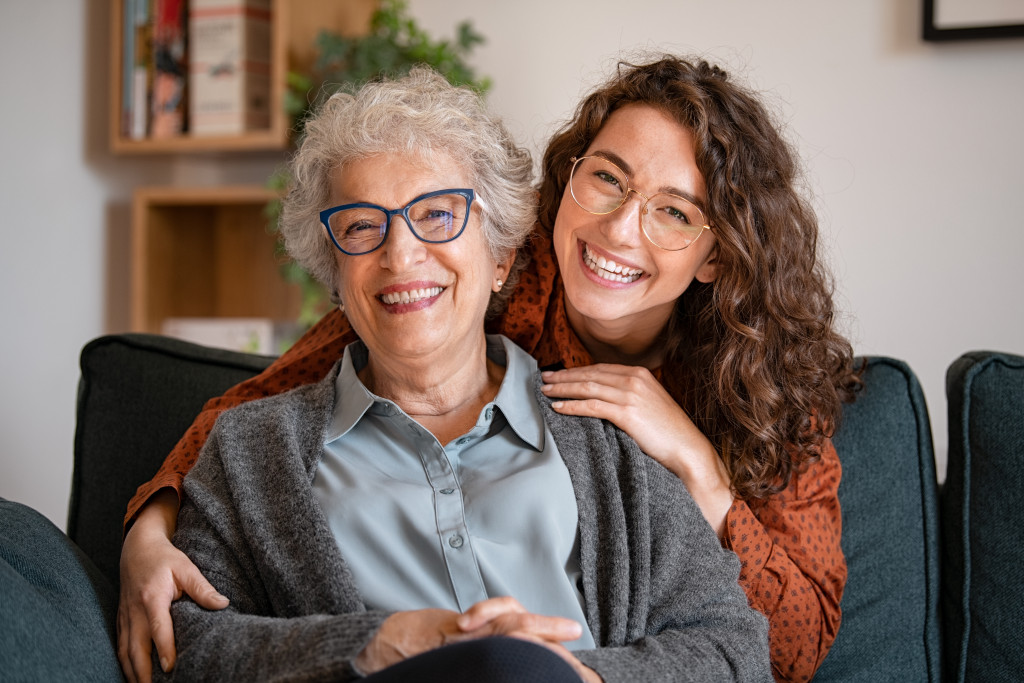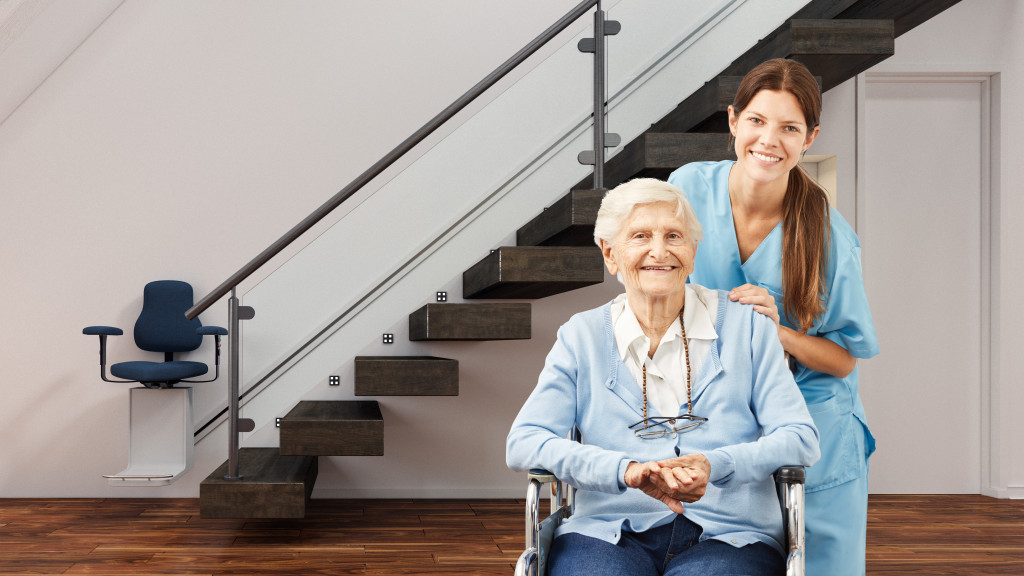- Home care for seniors necessitates home modifications to provide a safe and comfortable living environment.
- Effective schedule management, utilizing digital tools and delegation, enhances the quality of senior care.
- Professional nursing services offer specialized medical and daily living aid, which is crucial for seniors with health issues.
- Respecting seniors’ autonomy and comfort in the caregiving process ensures a rewarding experience for all.
Caring for grandparents at home is a viable option for many individuals due to several factors. The familiarity of the home environment is often comforting for older people, and the presence of family members can provide emotional support and companionship. Additionally, home care can allow for personalized attention to the specific needs of older people, contributing to better health outcomes.
According to the U.S. Bureau of Labor Statistics, the number of unpaid family caregivers has risen to 43.5 million adults, indicating a growing trend toward home care. Furthermore, data from the National Alliance for Caregiving and AARP suggests that approximately 87% of seniors prefer aging in place, highlighting the desire among older people to stay in their homes.
If you are caring for your grandparents at home, there are several factors to consider to ensure their safety and well-being. Here are a few of them:
Home Modifications
One of the most critical aspects of caring for seniors at home is implementing necessary home modifications. These changes aim to create a safe and comfortable living environment that caters to their specific needs. They can significantly reduce the risk of accidents, mainly falls, a leading cause of injuries among older adults. Here are four vital areas to consider:
Bathroom Safety
The bathroom can pose many risks due to its wet surfaces. Consider installing grab bars in the shower, near the toilet, and the bathtub. Non-slip mats and a shower chair can also enhance safety. Another crucial modification to consider is the height of the toilet, which can be lowered for easier access.
Stair and Hallway Navigation
Stairs can be challenging for seniors, especially those with mobility issues. Installing handrails on both sides, sufficient lighting, and possibly a stairlift can significantly help. Ensure all hallways are clear of clutter. If possible, consider relocating your grandparent’s living space to the ground floor.
Kitchen Accessibility
Lower countertops and storage spaces can make it easier for seniors to prepare meals independently. Also, consider replacing knobs with easy-to-use lever handles. Kitchens also have potential hazards, such as hot surfaces and sharp objects. Make sure to implement safety measures, such as installing stove guards and childproof latches on cabinets.
Bedroom Comfort
Seniors should be able to move around their bedrooms freely. Consider a bed at an appropriate height and possibly a bedside commode if mobility is a significant issue. Replace any tripping hazards like loose rugs or cords. Bedrooms require ample lighting, including nightlights, for more straightforward navigation at night.
Schedule Management

Effective schedule management is paramount when caring for seniors at home. An organized routine provides structure and anticipates the needs of older people, particularly those struggling with memory issues. Regular schedules also help decrease anxiety and confusion, increase comfort, and optimize healthcare outcomes.
Maintaining a routine involves planning meals, medication times, physical activity, rest periods, and social interaction. Keeping track of doctor’s appointments and other special events is also crucial. While it may seem daunting, here are a few strategies families can employ:
Utilize Digital Tools
There are numerous apps and digital calendars that can help manage schedules effectively. They offer features like reminders and alerts for medication times or doctor’s appointments and can be synchronized across multiple devices for all family members to access.
Delegate Tasks
If multiple family members are involved in the care, distributing tasks among them can be effective. Assigning specific responsibilities to individual members ensures that all aspects of care are covered and can reduce the chances of missed assignments.
Regular Review and Adjustment
A senior’s needs can change over time. Regularly reviewing the schedule and making necessary adjustments ensures it continues to meet their evolving needs. Involve your grandparents in these discussions to respect their autonomy and understand their preferences better.
Remember, a well-managed schedule not only ensures that all caregiving tasks are carried out efficiently but also promotes a sense of independence and dignity in seniors.
Professional Help

While family members can provide valuable care and support, there are situations when professional assistance is beneficial or even necessary. Home nursing care services can be a critical resource for specialized medical care, daily living assistance, and respite for family caregivers.
Home nursing care services entail professional care provided by licensed nurses or healthcare aides, typically in the comfort of the senior’s home. These services can range from periodic visits for routine check-ups and medical management to full-time care, depending on the needs of the individual.
Professional caregivers bring expertise in medical care, including managing complex medical conditions, administrating medications, wound care, physiotherapy, and more. This expertise can be vital for seniors with chronic illnesses or those recovering from surgery or an acute medical event.
Furthermore, professional caregivers can assist with daily living activities such as bathing, dressing, meal preparation, and housekeeping, ensuring seniors can live comfortably and safely at home. This level of care can be especially crucial for seniors with mobility issues or cognitive impairments.
Final Thoughts
Caring for grandparents at home requires careful consideration and planning to ensure their well-being. Home modifications, effective schedule management, and professional help can all contribute to providing the best possible care for your loved ones. Remember to involve your grandparents in the decision-making process, respect their autonomy, and prioritize their comfort and safety. With proper support and resources, caring for older adults at home can be a rewarding and meaningful experience for them and their families.
